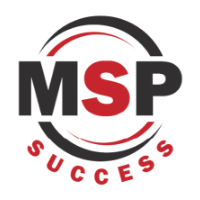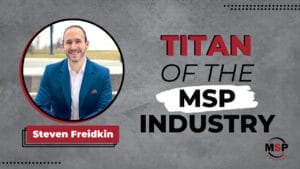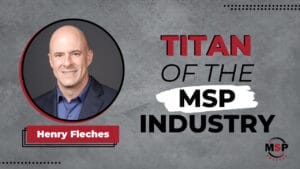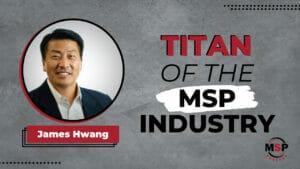It’s feast-or-famine time for many MSPs, but Shea Kelly, president and chief executive officer of Circle Computer Resources, shares his insights into how MSPs can maximize growth by focusing on what’s mission-critical to their customers.
Note: This article is taken from a live interview and has been edited for clarity and length.
Shea Kelly has watched his family’s business grow into a national leader in offering Internet services to out-of-the-way locations, including truck stops, RV parks and hotels, across the country. As president and CEO of CCR, he’s led the charge to make IT services as reliable and simple as humanly possible.
Robin Robins, founder of MSP Success Magazine and Big Red Media, spoke with Shea to understand how an MSP can meet the challenges of finding the staffing necessary to meet customers’ ever-rising expectations. Shea revealed why an increased reliance on automation and partnerships is key to increased growth and greater profits.
Robin Robins: With $52 million in revenue, CCR’s growing like a weed through mergers, acquisitions and organic growth. Tell us a little bit about your company, Shea.
Shea Kelly: CCR started in 1986, and we’re a second-generation family business. My siblings and I basically grew up in the business. We transitioned over to the second generation about 10 years ago, and we’ve transformed into a family of technology companies.
We serve the media space, large construction, telecom and SMBs in our local areas, both in Iowa and Long Island. You could say our niche boils down to getting mission-critical Internet to the middle of nowhere. We do edge computing in 400 data centers all over the world. All this is managed services, but it’s mission-critical stuff, because we can’t be down for more than seven hours a month for 10,000 channels all over the world.
We’ve built a team for mission-critical, tech managed services. It’s 90% of our business. We deal with large enterprises and billion-dollar companies doing those kinds of things.
Robin: Did you get that way through acquisitions or did it grow organically through your client base?
Shea: Most of it was through just organic growth. We basically never said no all through the 1990s and 2000s. We just had this mindset that always kept asking, “What more can we do?” We kept looking for more ways to serve, and we’ve built CCR and kept it growing through performance, credibility and trust.
Robin: What do you perceive as our industry’s biggest challenges and what do you see as the major opportunities for MSPs?
Shea: With the cost of goods increasing, there are simple things you need to be doing, like changing your terms so prices can change, allowing you to have more real-time quoting. You really need to be more nimble and agile dealing with these things.
Plus, you’ve got to find smarter ways to do IT without necessarily having all the talent you’d want to have. Can you lean into automation, can you lean into simplifying some things? All those challenges are very real. It seems like they’re happening faster and they’re changing faster than before. So, we have all got to stay on our toes.
Robin: You mentioned automation, but what else are you doing to help with the labor shortage?
Shea: As we’re a bit larger, we have dedicated some folks to automation. But you lean into your partners, lean into a Kaseya, and have them help you use those tools that they integrate together. The other thing is that a lot of times you think of other MSPs in your area as competitors. Well, what if we started working together? Instead of competing, why not start partnering?
You’ve got to get creative with partnerships, with contractors, and lean into your partners to help with some of the integration automation.
Robin: Do you find you’re recruiting from all over or are you finding certain markets are tougher than others?
Shea: To serve across the US, we have to partner with other local MSPs and contractors when we have specialty needs. So we definitely hire remotely. We have remote workers for certain industries, if they have a lot of experience in an industry specifically or a specific skill set. So, definitely, all options need to be on the table.
Robin: Now, when you mentioned automation, are you talking like a ChatGPT or are you developing your own automation?
Shea: Some of our automation is homegrown, because some of the things we do simply don’t exist anywhere else. Some automation involves deeper partnerships, like with our partners at Kaseya. And we’ve got folks looking at ChatGPT as well. So it’s all the above. If it already exists or it’s a simple change that a partner can do, we don’t reinvent the wheel. But if it’s not out there and it creates a differentiating value for our services and for our customers, we’ll do those things ourselves.
Robin: Now, you mentioned partnerships a couple times. What specifically are they doing for you?
Shea: We really embraced the whole KISS principle, that vision of figuring out how we can help make it simple. Our team doesn’t have to develop those kinds of things, like creating a dashboard, if we just partner closely with Kaseya. We’re always asking how we could take an already-complete model like IT Complete, pull it together and use that to bring it to life faster for the customer. Plus, Kaseya needs partners like us and everybody else to really give them feedback on improvements, and their response has always been great.
Robin: One of the common threads I’ve been hearing in these interviews is reducing the number of vendors you’re working with, to be more efficient and to control costs. A bigger MSP like you can go to a Kaseya and say, “Hey, we’re bringing a lot of business. Give me a good deal.” It sounds like that’s what you’re talking about regarding automation.
Shea: Absolutely, we’re all about simplifying automation, so we don’t have to rely on a high code model. You can now do a low code model where you don’t have to have a developer or a DevOps person doing all the work. So de-skilling automation is definitely out there. Look into those things that are much easier to do, where technicians, or even some of the managers, can do it themselves.
Robin: Let’s talk about opportunities. If you were running a $2 million, $3 million a year MSP, where would you be placing your bets on where the money is and where you need to be?
Shea: I think security is that low-hanging fruit, and compliance for sure. Additionally, I’d go find another $2 million MSP in my market and I would try to join forces, because complexity, demand and expectations are rising. It’s just so hard to do everything by yourself.
Robin: If you were small, would you partner up? Would you find a private equity firm?
Shea: I wouldn’t go to private equity right away. I would try to partner up in my market by finding another MSP that matches well with both of our strengths and weaknesses. You know, the one plus one equals five, right? That’s step one. And then bring that together to get some good momentum going. That’s when you want to make a decision about maybe going with private equity or maybe it’s just, “Let’s do it again.” So, first off, I would definitely consider finding a good marriage, where the partners are “almost equals” but with different strengths.
Robin: Are there any other areas you think are really big or important for MSPs to think about as we go into 2023?
Shea: I think regarding mission-critical areas, one of the biggest low-hanging fruits is connectivity and making sure the network is really performing. So I would lean more on the WAN side, especially now that you’ve got more hybrid workers and people working from home.
Obviously it depends on which business we’re talking about and which industry. But remote work is here. Maybe it’s not full-time, but business owners are dealing with a much bigger geographic footprint for their team members nowadays, so we need to be thinking that way. What are the cell plans? What’s the security in their homes like? So, I would lean in on the WAN side of connectivity by looking into that more.
For our customers and business owners, our job is to keep simplifying IT as the complexity of the world increases.







